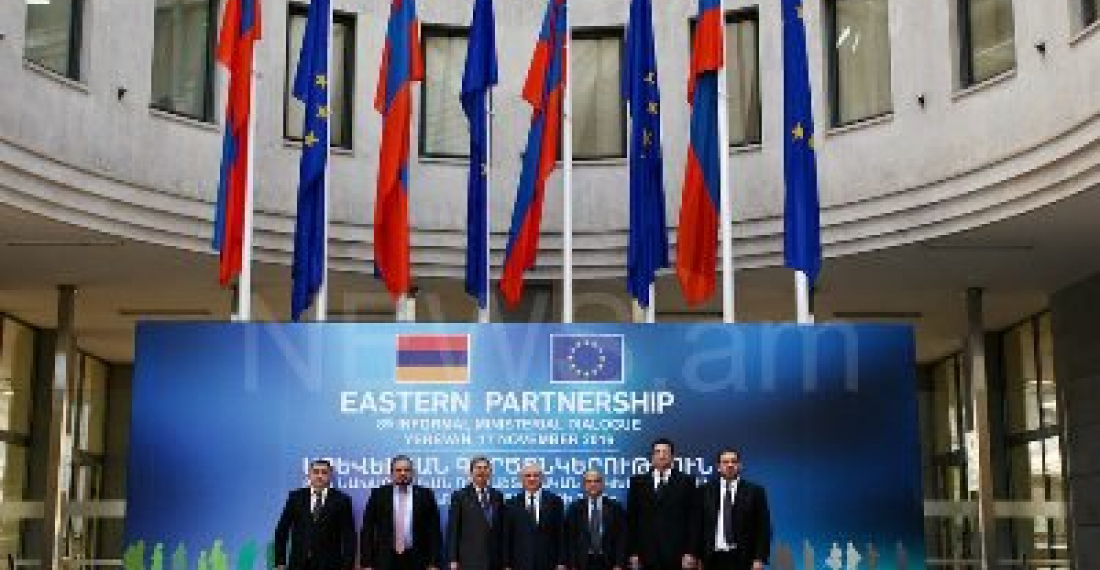The eighth informal meeting of foreign ministers of the Eastern Partnership in Yerevan has been constructive, said the EU Commissioner for European Neighborhood Policy and Enlargement Johannes Hahn at a press conference on the results of the meeting.
"We discussed the current situation regarding the implementation of the Eastern Partnership program. Now is the time to act, so that the citizens can also see the results," said Johannes Hahn.
Earlier, Johannes Hahn and Carlos Moedas, EU Commissioner for Research, Science and Innovation and Jean-Christophe Belliard, Deputy Secretary General of the European External Action Service launched the EU4Innovation initiative together with the Eastern Partnership countries, in Yerevan.
Commissioner Moedas commented: "Innovation is crucial to increase Europe's competitiveness and to address global challenges such as climate change or sustainable development. Our new initiative, EU4Innovation, will boost innovation capacities of our Eastern partners. It will stimulate innovative ideas and support them on the way to market, while at the same time drawing on the existing knowledge and networks we are building in the EU."
The new EU initiative, EU4Innovation, will combine all EU activities that support the development of Eastern Partnership countries (EaP) innovation capacities, notably those funded under the Horizon 2020 programme and the European Neighbourhood Instrument.
source: commonspace.eu with the press service of the European Commission.
photo: An informal ministerial meeting of the Eastern Partnership countries was held in Yerevan on 17 November 2016 (picture courtesy of the press service of the European Commission).







